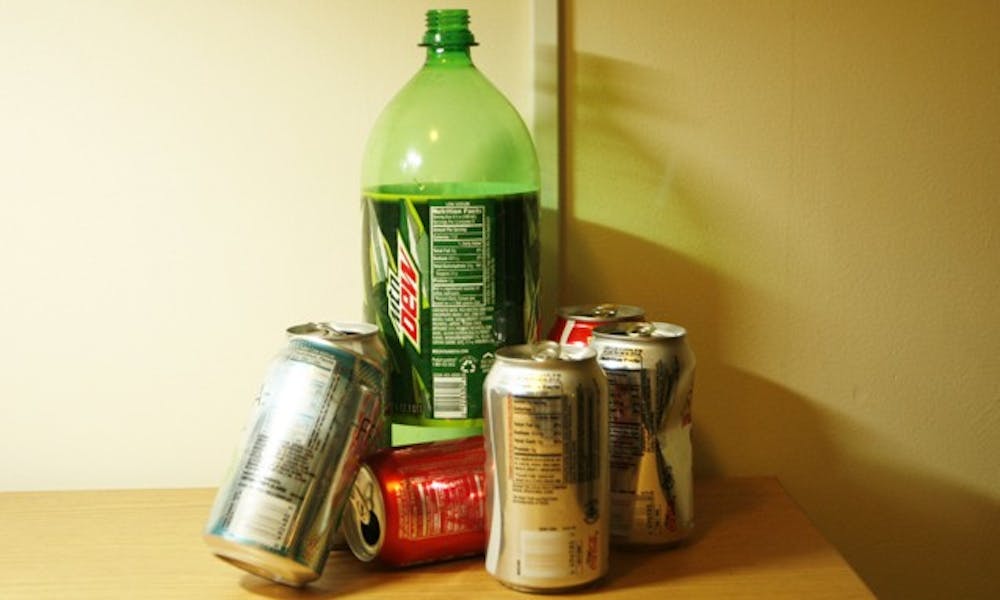In light of a recent push to implement a soda tax to reduce obesity, Duke dietician Martin Binks has voiced his skepticism for the proposal.
Approximately $147 billion—or 9.1 percent of all money spent on health care in the U.S.—is spent on fighting diet-related diseases, according to a report published by the New England Journal of Medicine Sept. 16. A number of public health officials are advocating a tax on high-caloric beverages to decrease consumption of sugary drinks such as soda, sports drinks and energy drinks. An excise tax on producers of high-caloric beverages could generate up to $14.9 billion in tax revenue next year, the NEJM reported.
The report also pointed to past success when high taxes on cigarettes effectively curbed smoking, noting that similar results could be anticipated in relation to high-caloric beverages.
But Binks, research director at the Duke Diet and Fitness Center, said the negative consequences of smoking are more direct and severe than those associated with drinking soda.
“It doesn’t mimic the situation with smoking as much as people would think,” Binks said. He added that tax revenues should be allocated for a comprehensive and concentrated educational program, and that an excise tax coupled with government subsidies for healthy alternatives would be the best way to ensure that public preference is steered in a healthy direction.
Frank Sloan, the J. Alex McMahon professor in health policy at the Fuqua School of Business, noted that the implementation of a soda tax would be accompanied by a decrease in consumption of sugary drinks, but added that he was not sure what people would look to as substitutes. Sloan, however, said Binks’ suggestion to implement subsidies is not in the government’s best interest.
“With such huge deficits, subsidies might not work,” Sloan said. He noted that increased demand for bottled water in response to higher soda prices could contribute to elevated prices of water and other healthful options.
Connel Fullenkamp, associate professor of economics, said the government would have to impose a substantial tax to discourage people from consuming high-caloric beverages. But he noted that the negative consequences of such a tax would cancel out any positive benefits and over time, as governments can become too dependent on such taxes.
“When we put taxes on goods, we can’t anticipate all the consequences,” Fullenkamp said. “They will always exist and always frustrate policy makers.”
Economics aside, Binks said a shift in public preference away from soda will not guarantee that preference will shift to heathier food items, as it is just as likely that consumers will choose equally unhealthy food items.
“In principle and spirit, I would say that I agree in using some global approach to influence the food industry,” Binks said. “My first concern is that sometimes, the reactionary taxation of a single food item might not be the best way to do it.”
Freshman Tejen Shah said a soda tax would not largely affect his spending habits because he does not drink soda regularly.
“But I know a lot of friends who would have to make a tough decision about buying soda, especially those that drink it all the time,” he added.
Consumers look for certain qualities in their soft drinks and may be reluctant to give up current drinking habits for fear of not finding satisfactory alternatives, Fullenkamp said. He noted that those looking for caffeine in soft drinks could turn to other beverages like coffee but may not obtain the same value from such a substitute.
“I think it’s much more symbolic, you can argue that soda is the place to start and follow-up with more taxes on other unhealthy foods,” he said. “Maybe this is the most politically feasible way.”
Get The Chronicle straight to your inbox
Signup for our weekly newsletter. Cancel at any time.

